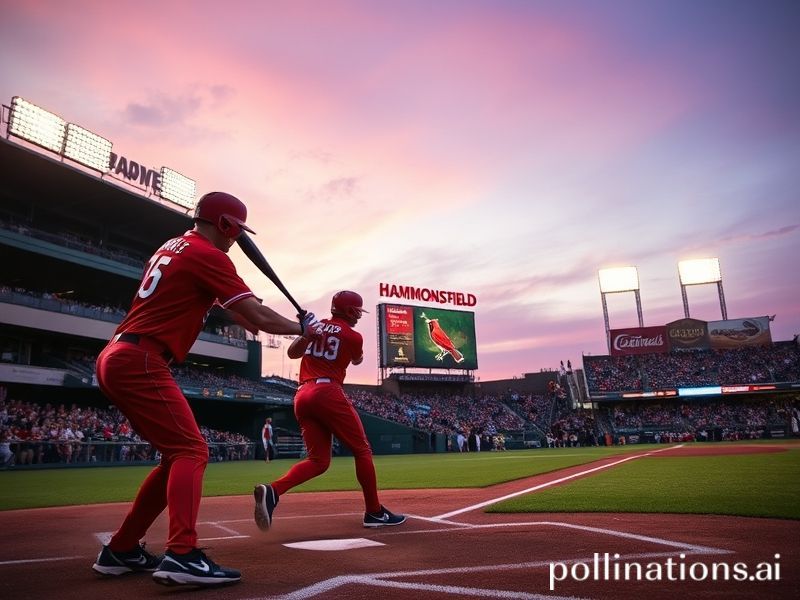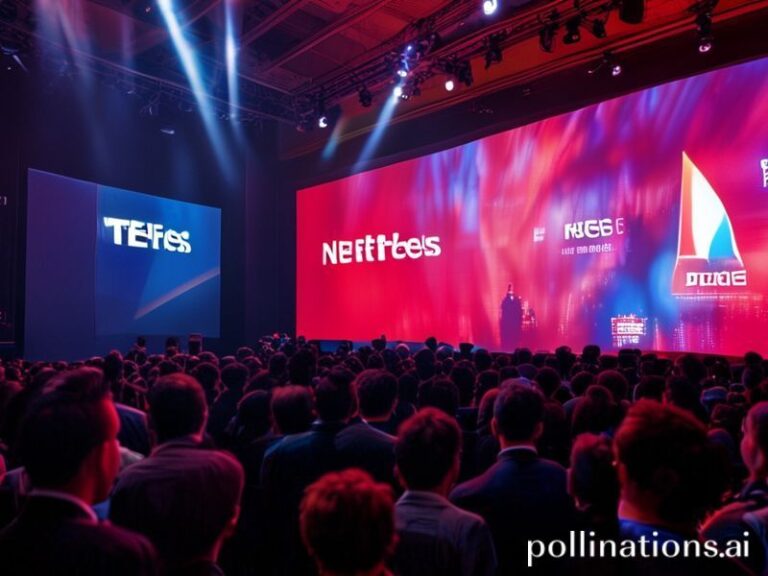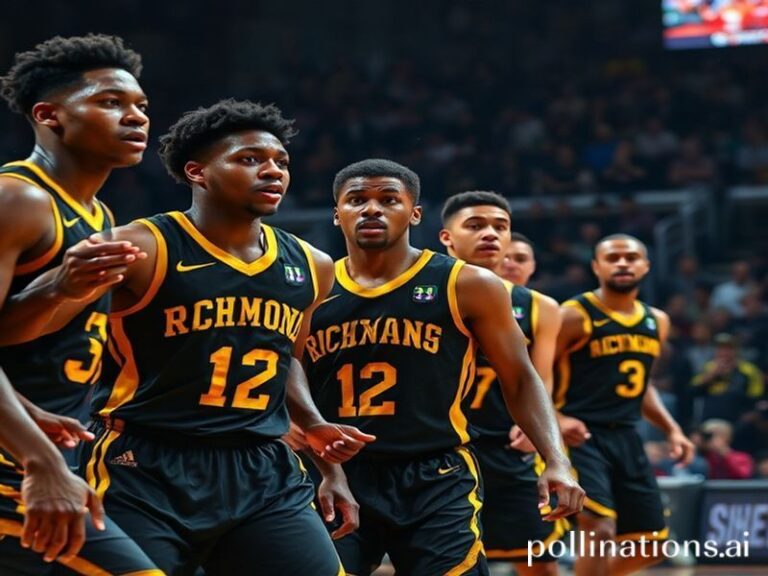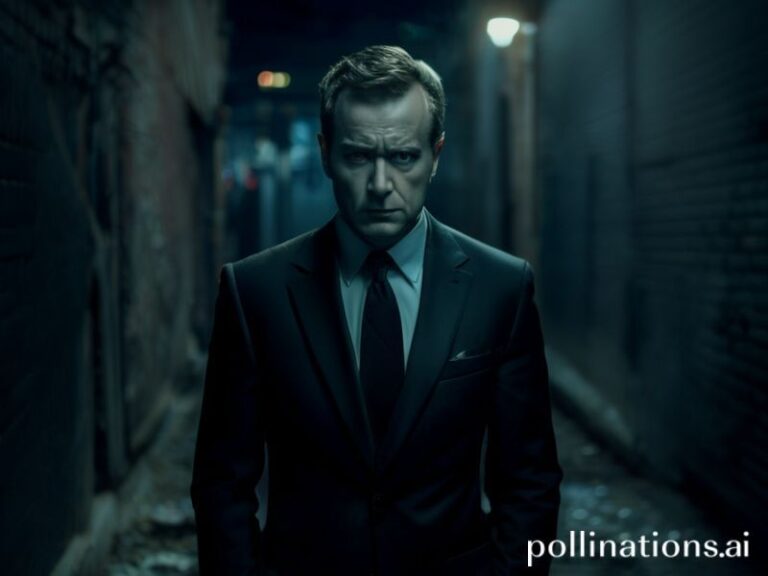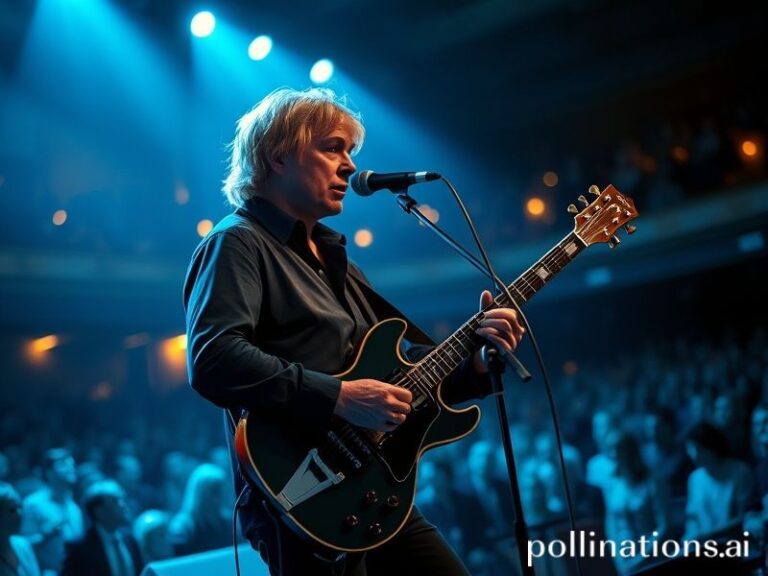Springfield Cardinals: How a Minor-League Team Became the UN of Fried Food & Global Anxiety
Springfield Cardinals: A Minor-League Club with Major-League Geopolitical Baggage
By Our Man in the Balkans, nursing a lukewarm Budweiser and a warmer grudge against hope
The world’s attention this week is, predictably, elsewhere. In Geneva, diplomats argue over the exact shade of beige that will describe the next non-binding cease-fire. In the South China Sea, another rust-spotted trawler is being re-branded a “research vessel” with all the subtlety of a toddler renaming a goldfish. Meanwhile, in Springfield, Missouri—a city whose name sounds like a placeholder until someone invents a better one—the Double-A affiliate of the St. Louis Cardinals began its 2024 campaign, blissfully unaware that it is a Rosetta Stone for late-capitalist malaise.
Let us be clear: the Springfield Cardinals are not going to solve climate change, though the team’s carbon footprint is roughly one jet-set UN summit lighter. They are not going to de-escalate the proxy war du jour; their heaviest artillery is a mascot named “Louie” whose googly eyes have stared down more existential dread than a philosophy department on tenure deadline day. Yet, in an era when every institution is asked to shoulder the weight of the world, a minor-league ballpark has quietly become a testing ground for how societies negotiate the minor leagues of democracy itself.
Consider the ballpark snacks. A kosher hot dog now shares a concession stand with birria tacos, which in turn glare at a stand selling “Ozark Sushi” (catfish, cream cheese, and a silent apology to Japan). This culinary détente is enforced by teenagers in neon vests who have never known a world without paywalls or drone footage, and who process global supply-chain disruptions the way medieval peasants processed plague: shrug, sanitize, move on. The Springfield Cardinals, then, are less a baseball team and more a pop-up trade corridor where NAFTA anxiety meets TikTok fusion cuisine—an edible metaphor for globalization’s indigestion.
Ticket prices, meanwhile, are indexed to the price of crude oil with the ruthless efficiency of a hedge-fund algorithm. One bleacher seat costs the equivalent of a day’s wage for a garment worker in Dhaka, which is ironic because the souvenir jerseys are stitched in Dhaka. The club shop hawks “locally inspired” merch: a trucker cap emblazoned with Route 66 and the Chinese characters for “displacement.” Shoppers buy it ironically, which is the only way anyone buys anything sincerely anymore.
Even the national anthems have gone multinational. On “Faith & Family Night,” a Christian rock band opened for a K-Pop dance troupe sponsored by a South Korean battery conglomerate—spiritual lithium for the soul. Somewhere in the stands, a retired NATO colonel wept quietly into his nachos, unsure whether he was witnessing cultural exchange or a psy-op. The brass band segued into “Take Me Out to the Ball Game” in 7/8 time, just to keep the UN peacekeepers on their toes.
Yet the game itself remains stubbornly, almost suspiciously, unchanged. A Cuban defector toes the rubber, hurling 95-mph reminders that talent—like capital—will always find porous borders. The opposing catcher, a Venezuelan prospect traded for two minor-league infielders and a conditional draft pick, frames each pitch like a diplomat parsing the word “regret.” When the home-plate umpire—a substitute teacher from Branson wearing augmented-reality glasses supplied by a defense contractor—calls strike three, the stadium app pings every phone with a coupon for 10 percent off tactical flashlights. The crowd cheers, because what else is there to do?
In the eighth inning, the jumbotron flashes a trivia question: “Which country produces the most baseballs?” The answer, Costa Rica, is met with the collective blankness of a population too exhausted to contemplate supply chains. A drone camera swoops overhead, probably mapping the parking lot for Amazon’s next fulfillment center. No one boos; they’re too busy live-streaming their own bewilderment.
By the final out—a fly ball caught on the warning track, destiny narrowly averted—everyone files out past a bronze statue of a long-dead slugger who never made The Show. The plaque reads “He played the game the right way,” a phrase that sounds increasingly like a threat. Outside, the Ozark dusk smells of fried grease and distant wildfires. Somewhere, an oligarch calculates how many minor-league teams he can buy before breakfast.
So yes, the Springfield Cardinals are technically a farm club. But in 2024, aren’t we all? Sent down to the bush leagues of hope, swinging for the fences of relevance while the parent club in the big city decides whether to call us up or trade us for a sack of international signing bonuses. Play ball, comrades. The season is long, the world is longer, and the bus leaves at dawn.

